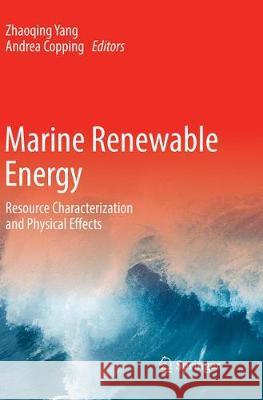Marine Renewable Energy: Resource Characterization and Physical Effects » książka
topmenu
Marine Renewable Energy: Resource Characterization and Physical Effects
ISBN-13: 9783319851778 / Angielski / Miękka / 2018 / 387 str.
Kategorie:
Kategorie BISAC:
Wydawca:
Springer
Język:
Angielski
ISBN-13:
9783319851778
Rok wydania:
2018
Wydanie:
Softcover Repri
Ilość stron:
387
Waga:
0.56 kg
Wymiary:
23.39 x 15.6 x 2.11
Oprawa:
Miękka
Wolumenów:
01
Dodatkowe informacje:
Wydanie ilustrowane











